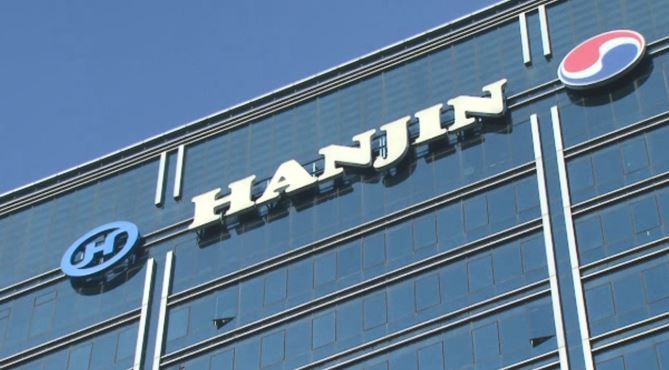 |
(Yonhap) |
Hanjin KAL said Thursday it will inject 300 billion won ($244.3 million) in Korean Air by selling its assets and through mortgage loans, one day after the airliner’s board decided to raise 1 trillion won by selling new stocks as part of a self-rescue plan.
The parent company of Korean Air currently owns a 29.96 percent stake in the air carrier.
Amid the growing economic impact of COVID-19 on the aviation industry, Hanjin KAL’s board of directors decided to “preemptively participate (to raise capital) for Korean Air to overcome the liquidity crisis as the largest shareholder,” the company said in a statement.
The company said it will hold a separate board meeting to prepare for selling assets and taking mortgage loans from lenders.
Besides Korean Air, Hanjin KAL currently owns subsidiaries like Jin Air, KAL Hotel Network and Jungseok Enterprise, which is known to own some core real estate assets.
On Wednesday, Korean Air announced its biggest rights issue in 20 years for raising capital.
Around 79.3 million newly issued shares, which will be listed on July 29, will be first bought by Korean Air’s shareholders, including holding company Hanjin KAL, then followed by general public at 12,600 won per share, according to the air carrier.
The entire shares of Korean Air will increase from 95.9 million shares to some 175.3 million shares.
The air carrier said its board has also separately reviewed plans to receive 1.2 trillion won in support from state-run banks including Korea Development Bank and the Export-Import Bank of Korea.
Specifically, 700 billion won of asset-backed securities will be issued based on air cargo receivables, while 300 billion won of perpetual bonds will be issued with stock conversion rights. Some 200 billion won will be prepared through asset-backed loans.
Amid the prolonging strains in the industry over COVID-19, Korean Air has been conducting an all-out self-rescue plan for survival.
South Korea’s flag carrier had some 70 percent of its employees take a six-month leave of absence in April. All executive-level employees have returned 50 percent of their monthly salary as well.
To improve the airline’s fiscal health, it has decided to sell its idle land and building in Songhyeon-dong in Seoul, the Paradise Hotel in Seogwipo on Jeju Island and its 100 percent stake in Wangsan Leisure Development, operator of the Wangsan Marina resort in Incheon, by the year-end.
Meanwhile, market experts said that Korean Air is expected to report poor first quarter earnings, which is expected to be announced later this week.
Last year, Korean Air’s net losses rose to 624.8 billion won from 185.6 billion won a year ago. Its debt-to-equity ratio reached 871 percent by end-2019.
The air carrier is expected to post an operating loss of around 240 billion won, the first time it will go into the red in 18 quarters since 2015, as well as debt ratio of 1,300 percent this year due to the COVID-19 impact, according to market watchers.
By Kim Da-sol (
ddd@heraldcorp.com)








![[Today’s K-pop] Blackpink’s Jennie, Lisa invited to Coachella as solo acts](http://res.heraldm.com/phpwas/restmb_idxmake.php?idx=644&simg=/content/image/2024/11/21/20241121050099_0.jpg)